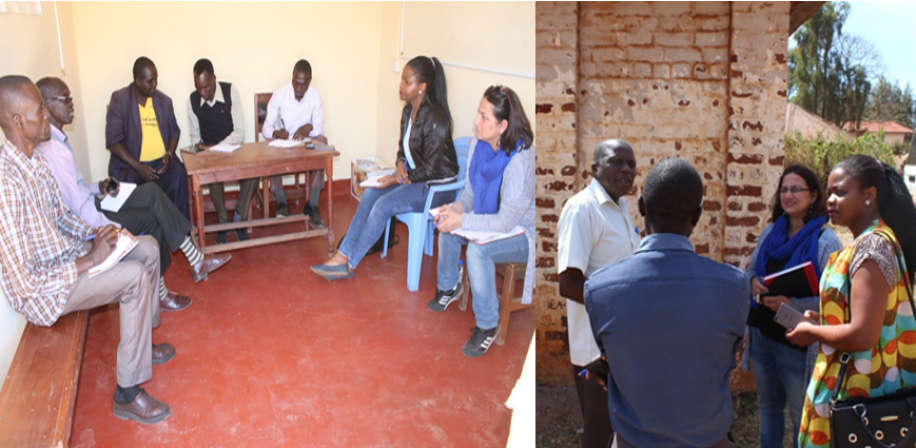Arunima Mukherjee is a Postdoctoral Fellow at the Department of Informatics at the University of Oslo. She comes from a background in tech and development studies and led the ICT pilot projects in Kenya, Guatemala, Kosovo and Pakistan. We spoke to her about how ICTs were used in the project’s pilot studies and her personal experiences from this research.
Photo Credit: Arunima Mukherjee
The pilot in Kenya focused on understanding the role of ICTs in scaling of a ‘peace network’: a community-led network of community volunteers which started to take shape in the Kitale region in North-West Kenya in response to the violent conflicts following the 2008 elections. The network was supported by a faith-based organization, RPFK.
The pilot included initiating a peace network in two sites in Turkana and Pokot by training volunteers to send coded text messages to a five-digit number whenever they sense a risk indicator. The risk indicators were identified through a community consultative process.
The early warning system used by the peace networks had been practised for 10 years, but there were both technical and institutional challenges to the system that hampered its effectiveness. Arunima and her team wanted to explore if this model could move forward through leveraging technology.
“We were trying to look at how to build and strengthen a dynamic locally-based network that would continue to bring people safely together towards a common goal of peace,” Arunima says. The results are promising. “The improved system has indeed strengthened and expanded the peace networks, and there is interest both from communities and police in introducing the system into other areas in an effort to reduce violence and conflict,” she says.
In Guatemala, the team focused on gender-based violence and how to create spaces for conversation. They followed the journey of women who were trying to seek justice with different institutions and found that while a local hospital had 19 reported cases, the police only had two. This research also revealed that women had to go to several institutions to get justice.
They therefore asked, “what is the role of the police in this process and why do people not trust the police?”
The team worked with local authorities to capture different types of data from different local institutions that normally did not communicate. They then developed a system where the different types of local data could be processed and presented visually. These visual presentations were then used as a starting point in conversations between stakeholders such as the police and communities to discuss both the magnitude of the problem and possible solutions.
What was unique about their pilot project in Kosovo was that it was the only place out of all the pilot countries they visited that had its own division in the police dedicated to community policing. A part of the objective of this division was to look closely into how community policing works in practice and how they reach out to women and children. This motivated the division to launch an app where people in the community could report cases to the police. The project assisted in launching and implementing the Community Policing App, as well as getting feedback from the community on their use of the app.
”“If there was any sort of violence, something dangerous, or if you witnessed any injustice, you could use the app to help the police. The app also had an option of being anonymous if they wanted to,”
Arunima Mukherjee
What was special about the app was that they saw a significant increase in reports of gender-based violence cases. Arunima believes that anonymity played a vital role in this spike of reported cases, as people seemed to be more willing to report on the app than walking into a police station to file a report.
In the case study in Pakistan, Arunima’s team introduced ICTs in the form of community radio programs. Here, Arunima and the research team collaborated with the local police to create a platform for communication on gender-based violence and violence against minors.
Even the all-powerful Pointing has no control about the blind texts it is an almost unorthographic life One day however a small line of blind text by the name of Lorem Ipsum decided to leave for the far World of Grammar. The Big Oxmox advised her not to do so, because there were thousands of bad Commas, wild Question Marks and devious Semikoli.
The project concluded that such a community radio program has rich potential as an information strategy that can empower women in Pakistan.
The project’s focus area on community policing in post-conflict settings was a completely new domain to Arunima. She found her role in the project to be very interesting as it allowed her to get a better understanding of not only the role of ICT, but also policing in post-conflict areas in general. During the fieldwork, she says collecting the data was one thing, but it was equally important for her to conceptually understand what they were looking for.
This interview was conducted and written by former intern Merethe Stensvik


